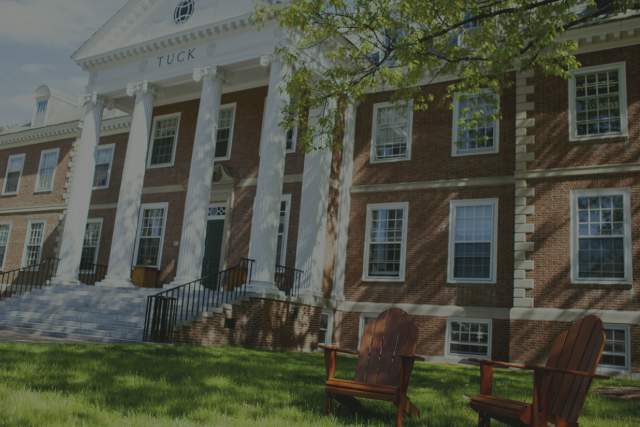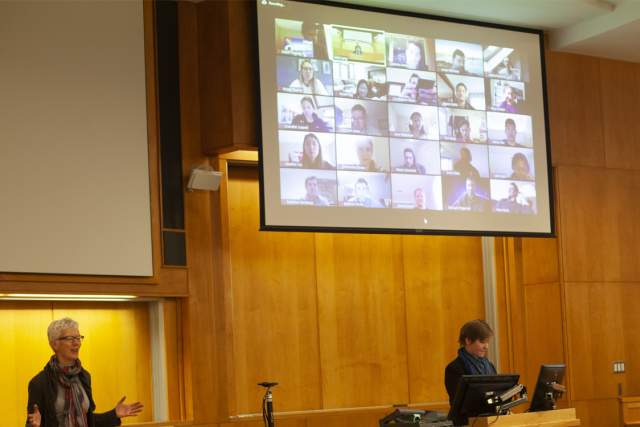"What's more important than community and connecting the voices of people who care right now?" asks Nini Meyer, executive director of Positive Tracks. "It's critical that local organizations feel connected to the academic institutions in our backyard, and vice versa. This program serves as an important bridge for both students and nonprofits."
The program Meyer refers to is the Nonprofit Board Fellows program at the Tuck School of Business, an experiential learning program for second-year students who join a nonprofit as a non-voting board member in the Upper Valley, which straddles the New Hampshire and Vermont border on the Connecticut River.
While 2020 has been a challenging period globally, opportunity is often born from struggle, and the 300 percent growth in participation from both local nonprofits and Tuck students in the Nonprofit Board Fellows program is proof of just that.
"Through the COVID-19 pandemic, we've seen a tremendous surge of interest from students in social impact, and the desire to give back to the Upper Valley community," say Hannah Payson, associate director of the Tuck Center for Business, Government, & Society (CBGS) and Cindy Falzarano, program manager, who jointly help manage the program. Through the Fellows program, Tuck students put their classroom knowledge to the test in real-time by working closely with local nonprofit organizations on timely and strategic business challenges.
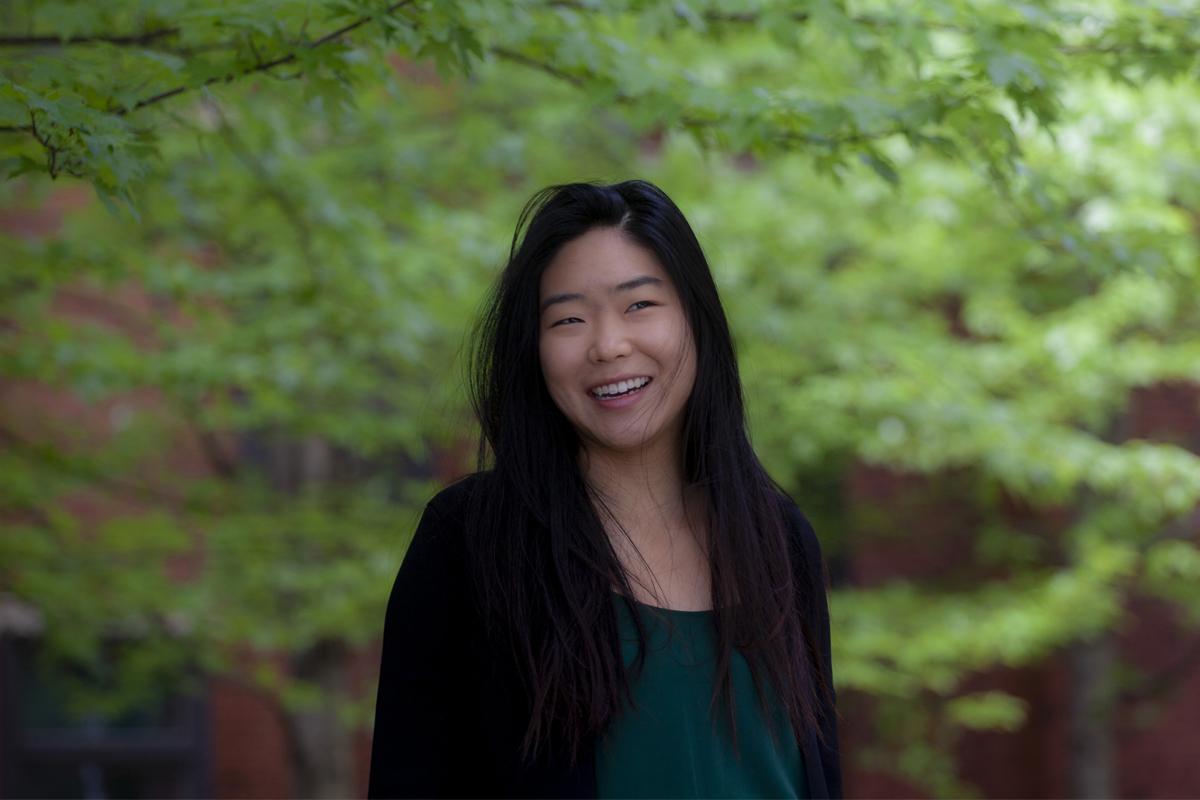
“The board members inspired the way I choose to communicate—always striving to challenge others respectfully and keep moving the conversation forward, all while leading with kindness,” says Amy Li D’14, T’20, a Positive Tracks board fellow.
First developed in 2009, the Nonprofit Board Fellows program gives Tuck students the opportunity to become more effective board members before being tapped to serve on a board. This overarching goal resonated with Dan Revers T’89, founder and managing partner of ArcLight Partners LLC, who began funding the program in 2014. Revers says after being asked to serve on boards early in his career, he realized he still had a lot to learn.
“Certainly, a lot of what I know from my professional life translates into a board member role, but there’s a lot that is very unique to nonprofits that I didn’t know,” says Revers. “It was clear that some modicum of training, experience, and exposure would have been helpful. I thought, if I had gone through that at Tuck, I’d be in a much better position to think of a better mousetrap for nonprofit fundraising in general.”
The fact that there was such a surge of interest among our students and local nonprofits is a testament to the quality and strategic importance of the program as well as to the values that Tuck is promoting through the tenets of wise, decisive leadership.
This year’s 300 percent increase in participation includes 23 participating nonprofits in the Upper Valley—Positive Tracks, the Vermont Center for Ecostudies, and the Good Neighbor Health Clinic, to name a few—and 40 T'21 fellows. John McKinley, executive director of the CBGS, says the heightened interest in the program comes at a critically important time when the world is looking to leaders to expertly navigate pressing social, environmental, and governance issues across sectors. “The fact that there was such a surge of interest among our students and local nonprofits is a testament to the quality and strategic importance of the program as well as to the values that Tuck is promoting through the tenets of wise, decisive leadership.”
Though health and safety concerns related to COVID-19 meant that the program had to launch and operate virtually, engagement and board meeting participation was higher than ever, with 80 attendees tuning into the onboarding event—far exceeding the number of participants from past years. Virtual board meetings also allow T'21 fellows to get a jump start on their commitment, joining board meetings throughout the summer while on their MBA summer internships.
“Going virtual has reimagined the boundaries and opened the doors to the world,” says Meyer of Positive Tracks, an organization that empowers young people to create positive change through movement and activity. Meyer says a goal of Positive Tracks is to be continually “compelling to young people.” For this reason, the board needs members to represent young and diverse voices. "For us to lift up the voices that need to be lifted, it's critically important we're bringing on the most varied voices we can," she says.
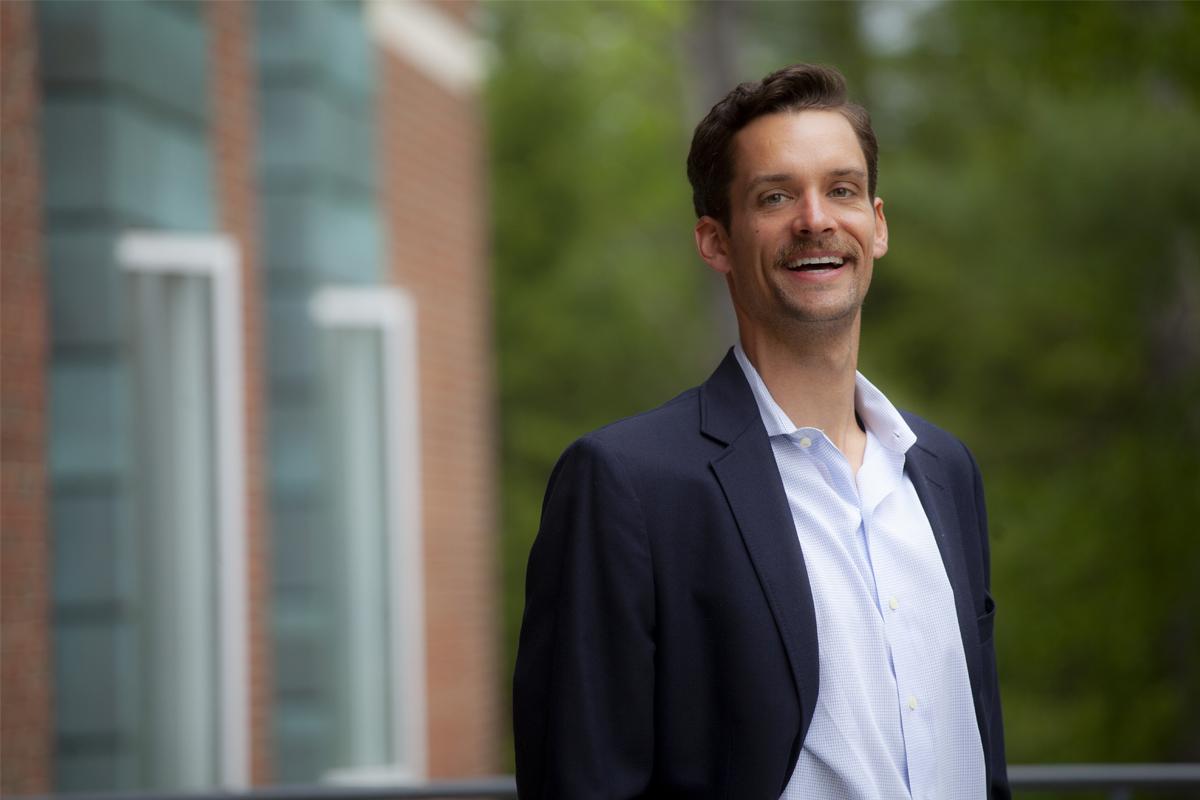
“This program was the best and most surprising way I gained exposure to these leaders and to this network at Tuck,” says Charlie Carey T'20, a Vermont Center for Ecostudies (VCE) board fellow.
The Nonprofit Board Fellows program helps bring this value to life. Sam Wolfson T'21, a Positive Tracks board fellow, is following digital educational trends and adapting Positive Tracks’ curriculum to be not only streamlined and hosted online but also in a format that amplifies their curriculum. According to Meyer, "during this crisis, we're not creating anything that isn't forward-thinking." While adapting to the changes brought on by COVID-19, the Positive Tracks team is only implementing projects and processes that will be maintained and valued post-pandemic. "Everything we create is for a stronger future. We need someone who thinks the way someone at Tuck thinks, with a global perspective."
Amy Li D’14, T'20, an MBA/MPH student and also a Positive Tracks board fellow, led an analysis on Diversity, Equality, and Inclusion (DEI) and, leveraging her findings, outlined a proposal to better inform the organization's decision making process and improve the inclusiveness of its programming. Participating at Positive Tracks’ board meetings exposed Li to "a group of all-star individuals who all care deeply about youth empowerment." The board members come from a variety of backgrounds, but what was most influential for Li was the effectiveness of their communication. "The board members inspired the way I choose to communicate—always striving to challenge others respectfully and keep moving the conversation forward, all while leading with kindness."
Charlie Carey T'20, a Vermont Center for Ecostudies (VCE) board fellow, was impressed by the caliber of the business leaders' network in the Upper Valley. Carey says he gained critical exposure to experienced business leaders and prevalent environmental and conservation issues in the rural environment of the Upper Valley. While attending business school in a metropolitan center connotes access to a traditional business leadership network, the authentic glimpse into rural social and environmental issues lent a perspective unique to Tuck.
When the world seems like it’s in a very difficult spot, people start to think about life differently. You think about what you can do to make the world better. Fellows can realize that by allocating their personal time and a small amount of effort—they can make a tremendous difference.
"The Upper Valley has a huge number of interesting people either still working and running businesses here or who have retired here,” says Carey. “The VCE board is the combination of the two. This program was the best and most surprising way I gained exposure to these leaders and to this network at Tuck."
Passionate about health care and the social sector, Julia Berk T'20 was accepted as a board fellow at the Good Neighbor Health Clinic. "Working alongside health providers in a rural area during the global pandemic and seeing the way that leadership decisions are made during the COVID crisis was a once-in-a-lifetime experience,” says Berk.
Berk was privy to the conversations that board members, clinic staff, and physicians conducted as they redefined Good Neighbor's patient strategy during the pandemic. "This situation has really driven home the importance of having a diversity of experience on the board,” she says. “I've witnessed firsthand how different stakeholders can bring such varying perspectives that stitch together to create an effective plan. Berk says her experience on the Good Neighbor board provided invaluable hands-on experience as she heads into her post-Tuck role at CVS Health as a senior manager of Kidney Care.
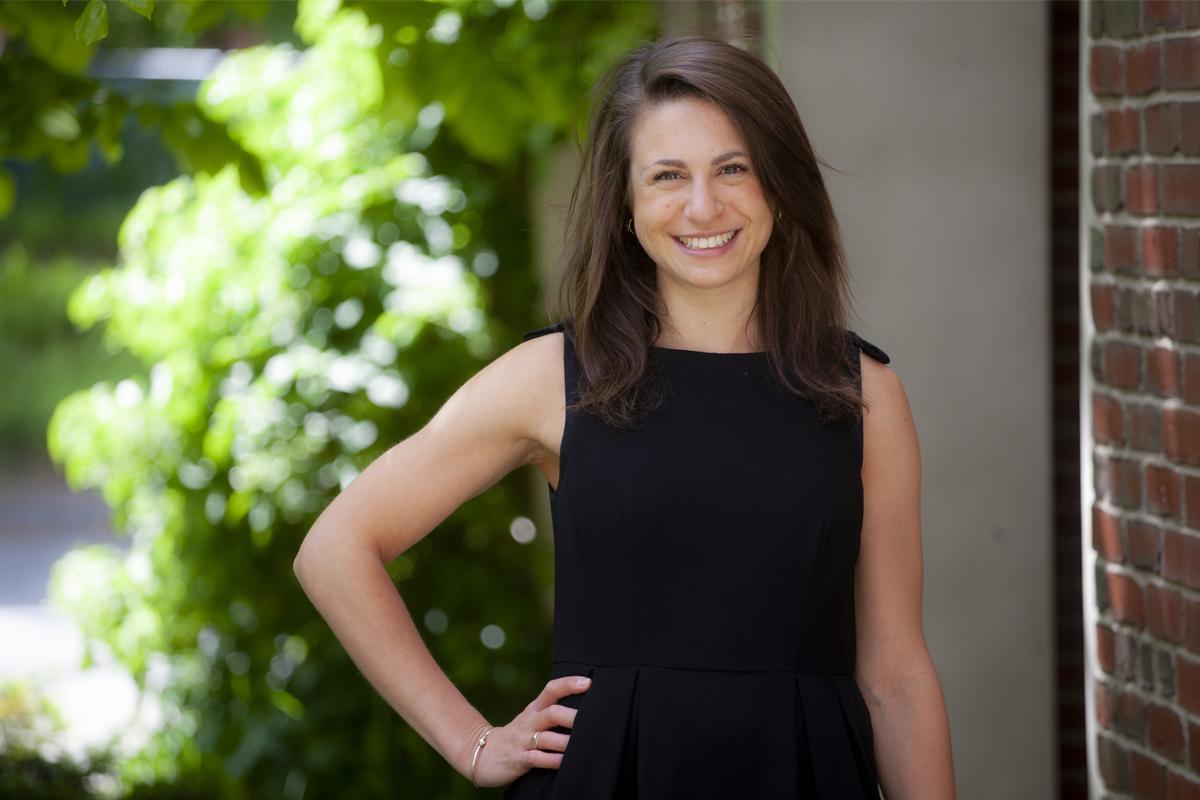
"Working alongside health providers in a rural area during the global pandemic and seeing the way that leadership decisions are made during the COVID crisis was a once-in-a-lifetime experience,” says Julia Berk T'20, a board fellow at the Good Neighbor Health Clinic.
Beyond providing valuable real-world experience, through the Nonprofit Board Fellows program, fellows also gain a deeper understanding of commitment. VCE board fellow Charlie Carey says sitting on a nonprofit board during the COVID-19 crisis changed his perspective on how to remain involved in his community and organizations that he truly cares about. “I need to be ready to step up in a big way and follow through with my commitment to a cause,” he says. “I’ve been so inspired witnessing the passionate board members I worked with who dedicate so much time and energy to important issues, no matter how life proves to get in the way."
This important lesson of commitment to helping local organizations and acting altruistically in the face of crisis is at the heart of the Nonprofit Board Fellows program, and it’s precisely why Dan Revers T’89 sees immense value in the program now, more than ever.
“When the world seems like it’s in a very difficult spot, people start to think about life differently,” says Revers. “Where do you want to put your energy and focus? You think about what you can do to make the world better. Fellows can realize that by allocating their personal time and a small amount of effort—they can make a tremendous difference.”
